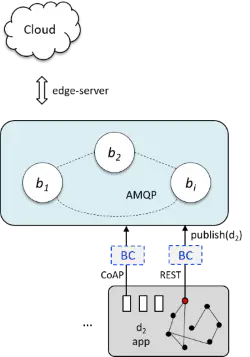When Service-oriented Computing Meets the IoT: A Use Case in the Context of Urban Mobile Crowdsensing

Abstract
The possibilities of new mobile distributed systems have reached unprecedented levels. Such systems are dynamically composed of networked resources in the environment, which may span from the immediate neighborhood of the users - as advocated by pervasive computing - up to the entire globe - as envisioned by the Future Internet and one of its major constituents, the Internet of Things. This paper more specifically concentrates on urban participatory mobile distributed systems where people get involved in producing new knowledge about the urban environment. Service-oriented and cloud computing are evident baseline technologies for the target mobile distributed systems. Service orientation provides the abstraction to deal with the assembly of the relevant heterogeneous component systems. The cloud provides the infrastructure to deal with the gathering and analyses of the observations coming from the sensing infrastructure, including from people. However, cloud-based centralized solutions come at a price, regarding both resource consumption and privacy risk. Further, the high heterogeneity of the participating nodes results in diverse levels of sensing accuracy. This paper provides an overview of our past and ongoing research to overcome the challenges facing urban participatory mobile distributed systems, which leverages mobile collaborative sensing, networking and computing. The experience with the Ambiciti platform and associated mobile app for monitoring the individual and collective exposure to environmental pollution serves as an illustrative use case.